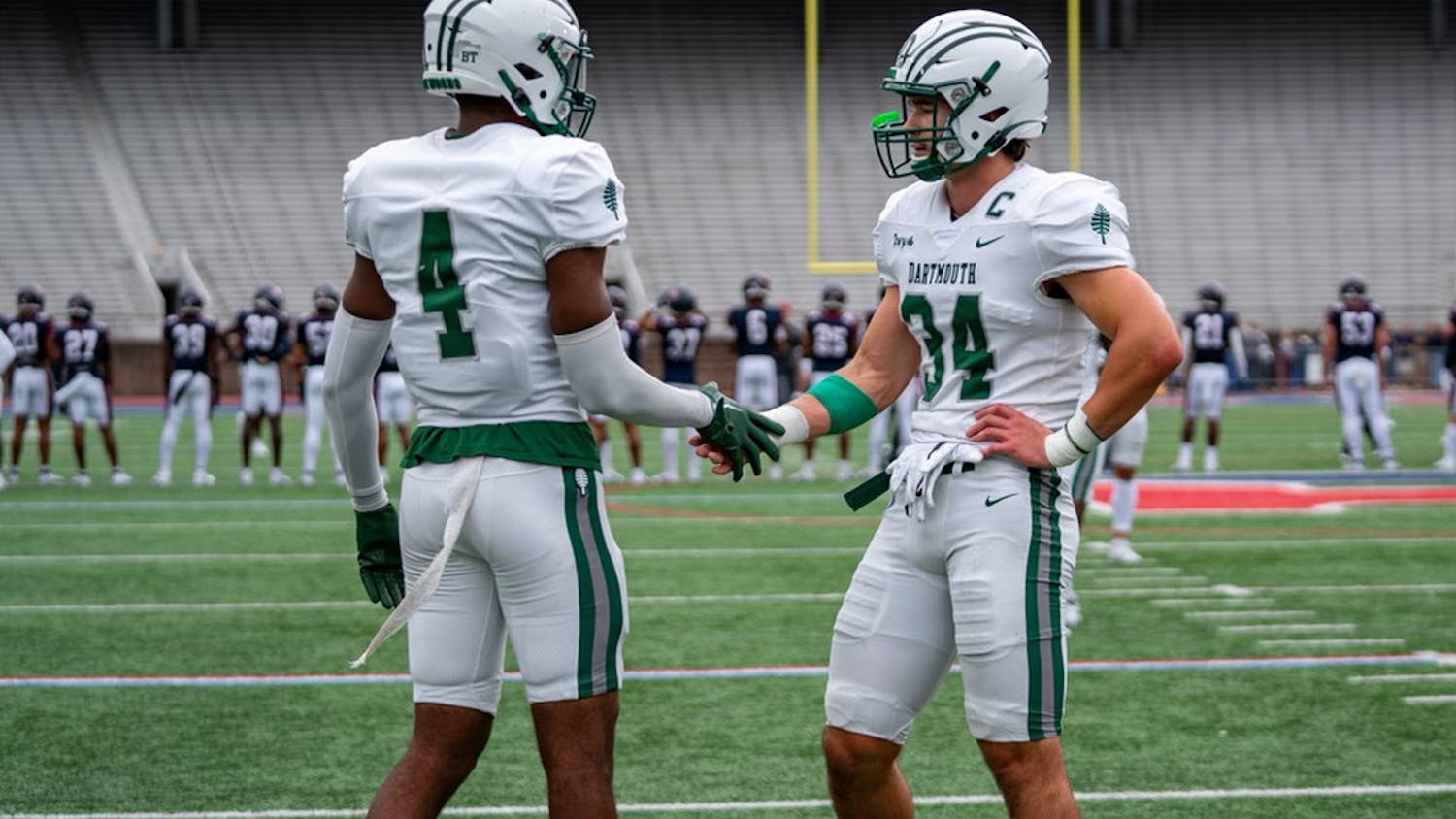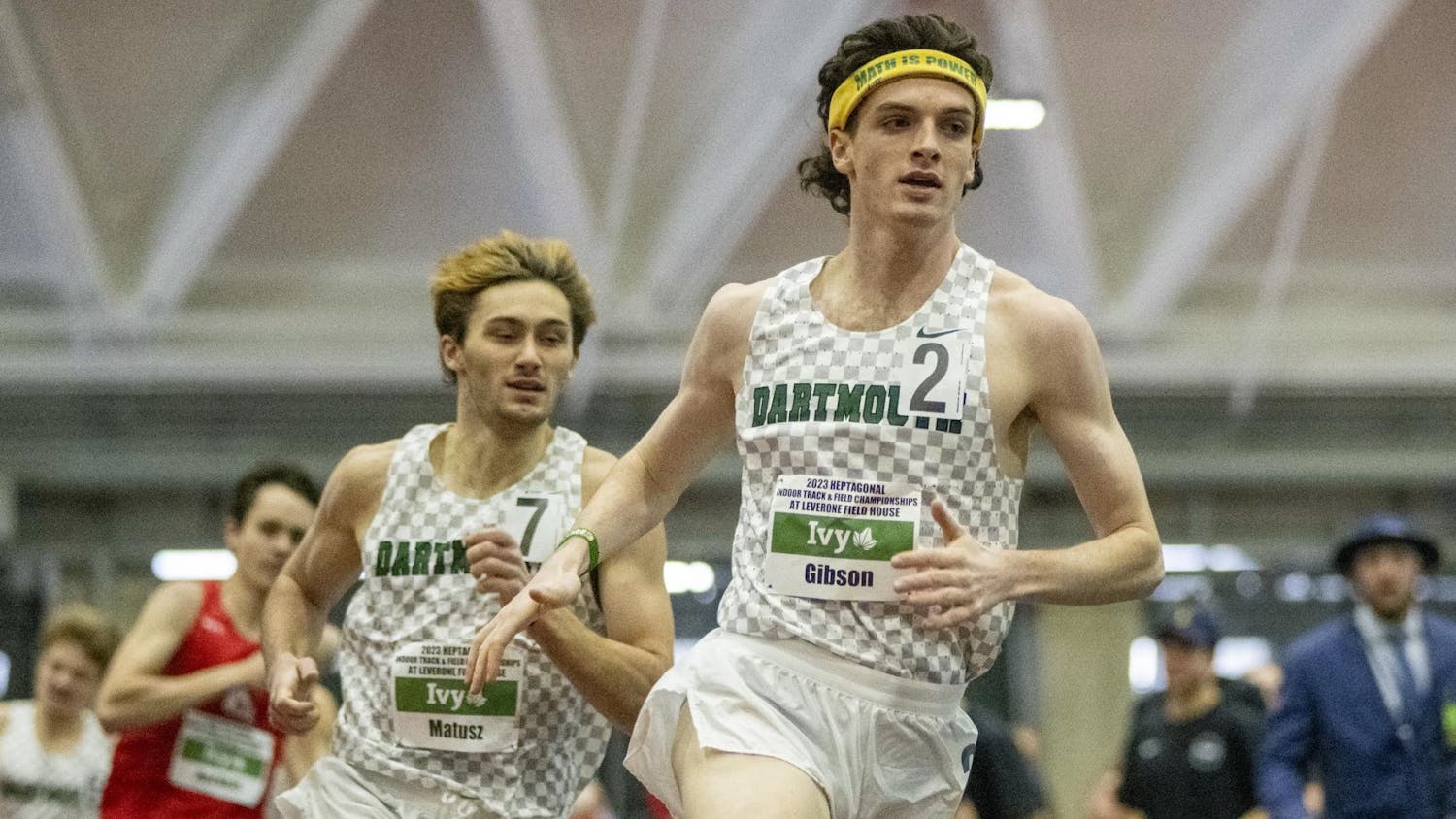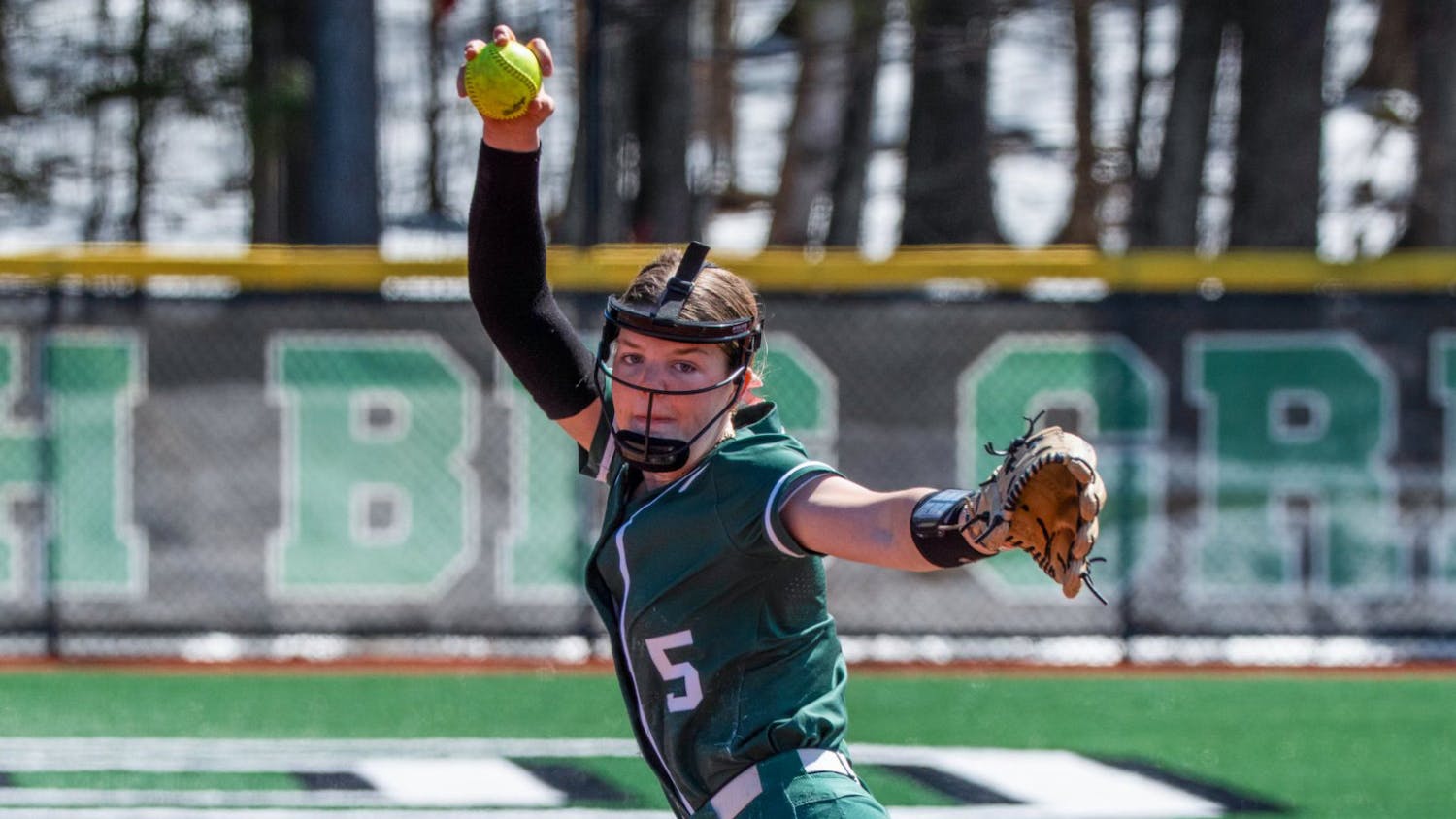If fans knew that a team would feature 11 freshmen in its upcoming season, only one term should come to mind: rebuilding. While the 2016-2017 men’s hockey team’s play showed that its players preferred not to fall victim to the “rebuilding” motto, flashes of progress were accompanied by frequent growing pains.
The team’s thrilling 3-2 victory over then-No. 11 University of Michigan in its first game of the season provided hope for not only a successful start to the season but also encouragement that the newcomers would be immediate contributors and college hockey level. While Troy Crema ’17’s game winner late in the third period got the attention, Cam Strong ’20, Will Graber ’20 and Ryan Blankemeier ’20 all recorded their first career points. Despite a mid-season scoreless streak, Strong would proceed to score 10 goals and 13 points total in his initial campaign in the Green and White, the second highest goal total for a Dartmouth freshman since Tyler Sikura ’15 netted 11 in his first season in Hanover. Graber finished third on the team with 19 points (five goals, 14 assists), while Blankemeier’s nine points placed him in a tie with classmates Charley Michalowski ’20 and Daniel Warpecha ’20 for ninth on the squad. Goaltender Adrian Clark ’20, who saw action in seven games, established himself as a reliable second option for head coach Bob Gaudet ’81, consistently exhibiting an aggressive presence and strong post-to-post movement to rival incumbent goalkeeper Devin Buffalo ’18 next season.
To captain Carl Hesler ’18, the fact that numerous freshmen have emerged as contributors so early in the season was not a surprise. When asked about the new freshmen skaters prior to the season-opener against Michigan, Hesler noted that the newcomers had already settled in.
“All 11 freshmen look like they can contribute right away,” said Hesler in an interview with The Dartmouth in October. “They are really good players, and we are looking forward to having them. It looks like we are starting where we left off last season, looking strong.”
This is not to say that the season was a smooth ride. After all, the Big Green finished ninth in the Eastern College Athletic Conference regular season standings as predicted in the preseason coaches’ poll. Though Dartmouth plays in a competitive conference featuring four top-20 teams according to the USCHO.com poll, a loss to lowly Brown University, three throbbing defeats to Yale University and end-of-season losses to St. Lawrence University and Clarkson University yielded evidence of inconsistency that can haunt a young, inexperienced team. Long-term injuries to veteran players River Rymsha ’18, Kevin Neiley ’20 and Tim Shoup ’18, brought Graber back to play full-time on the blue line from the Jan. 6 Princeton game onward. Dartmouth also lost the formidable presence of centerman Kevan Kilistoff ’19 for the final regular-season game against Clarkson as well as the Yale series. Kilistoff displayed effectiveness on both the forecheck and power play throughout the season.
An additional theme from Hanover this season was slow starts. Dartmouth found itself down after the first period in 15-of-31 games this season and came back to win just three of those contests. Its record did not improve after finding itself down after two periods either, finishing just 1-15. On the contrary, Dartmouth was 7-1-2 when ahead and 2-2-1 when even with its opponent, after two periods.
Such statistics, however, do not capture the heart and resilience of this year’s team. The Big Green appeared noticeably fitter late in games this season and often exhibited increased puck possession and quickness in the final 10 to 12 minutes of most games, a credit to first-year strength coach Nate Strah. Among the showcases and grit were the 2-2 tie at Princeton University, where Dartmouth was forced to play the final 39 minutes with just four defensemen, an 8-4 win over then-No. 6 Harvard University, a 2-1 hold off of Rensselaer Polytechnic Institute and the 3-2 overtime loss at Yale in Game 2 of the team’s ECAC first round matchup. After a 6-1 meltdown in Game 1 and without Alex Jasiek ’19, who was sidelined by a wrist injury suffered the prior evening, Dartmouth came out firing, scoring just 1:19 in and hustling down the stretch before succumbing to the Bulldogs on a bad bounce. When seemingly down and out, the Green and White just kept clawing back.
“The guys battled so hard and played the game the right way,” said Gaudet after the season-ending loss to Yale. “We matured so much as a team, and I am so proud of how we rebounded after last night. It is disappointing because we are not able to play anymore and keep building.”
Despite losing just four seniors to graduation, the returning skaters will have to make up their share of offensive production. Crema’s offensive performance this season — 29 points off of 17 goals and 12 assists — earned him a spot on the All-Ivy First Team. Dartmouth also loses Grant Opperman ’17, who recorded 16 points this season and departs Hanover after racking up 71 points over four seasons. Defensive leader Josh Hartley ’17 also found himself on the score sheet from the blue line, recording 14 points this season. But Connor Yau ’19 and Graber should be able to keep the blue line involved offensively after adding a cumulative 31 points.
With a few more good starts and more consistency, Dartmouth could have found itself in a better position entering the ECAC playoffs. While the Big Green has room to improve before heading into next season, the good news is that there is already a strong foundation of skilled young players eager to hit the ice again.



